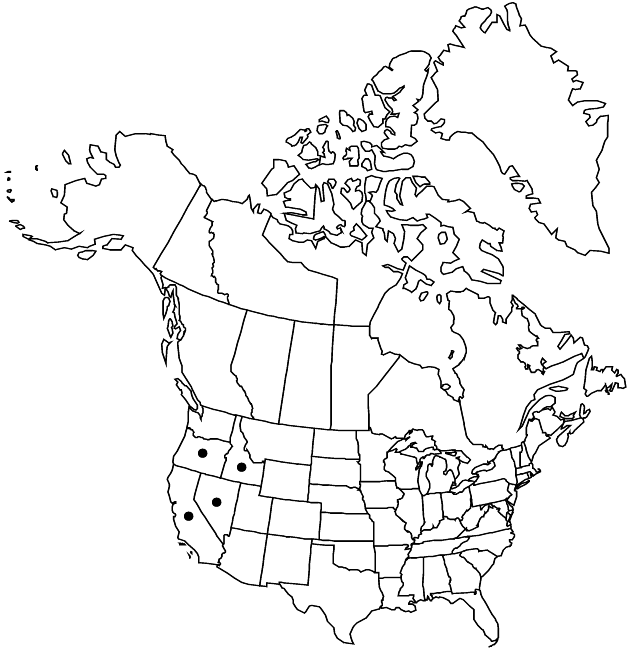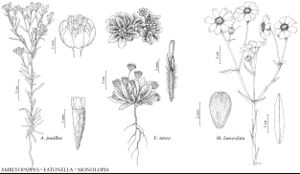Difference between revisions of "Eatonella nivea"
Proc. Amer. Acad. Arts 19: 19. 1883.
Basionym: Burrielia nivea D. C. Eaton in S. Watson, Botany (Fortieth Parallel), 174, plate 18, figs. 6–14. 1871
Treatment appears in FNA Volume 21. Treatment on page 349.
FNA>Volume Importer |
FNA>Volume Importer |
||
| Line 51: | Line 51: | ||
|publication year=1883 | |publication year=1883 | ||
|special status= | |special status= | ||
| − | |source xml=https://jpend@bitbucket.org/aafc-mbb/fna-data-curation.git/src/ | + | |source xml=https://jpend@bitbucket.org/aafc-mbb/fna-data-curation.git/src/f50eec43f223ca0e34566be0b046453a0960e173/coarse_grained_fna_xml/V19-20-21/V21_873.xml |
|tribe=Asteraceae tribe Heliantheae | |tribe=Asteraceae tribe Heliantheae | ||
|subtribe=Asteraceae (tribe Heliantheae) subtribe Baeriinae | |subtribe=Asteraceae (tribe Heliantheae) subtribe Baeriinae | ||
Revision as of 21:40, 16 December 2019
Stems usually crowded in tufts. Leaves 10–2(0–30) × 3–8(–12) mm. Peduncles 1–35+ mm. Involucres 4–6+ mm. Ray corollas inconspicuous, laminae ± erect, 2–2.5 mm. Disc corollas 1.5–3 mm. Cypselae black, 2.5–3.5 mm, hairs on margins 0.6–1.2 mm; pappus scales 1.5–2.5 mm. 2n = 38.
Phenology: Flowering spring.
Habitat: Sandy or gravelly soils, often with sagebrush scrub
Elevation: 800–3100 m
Distribution

Calif., Idaho, Nev., Oreg.
Discussion
Selected References
None.
Lower Taxa
None.
